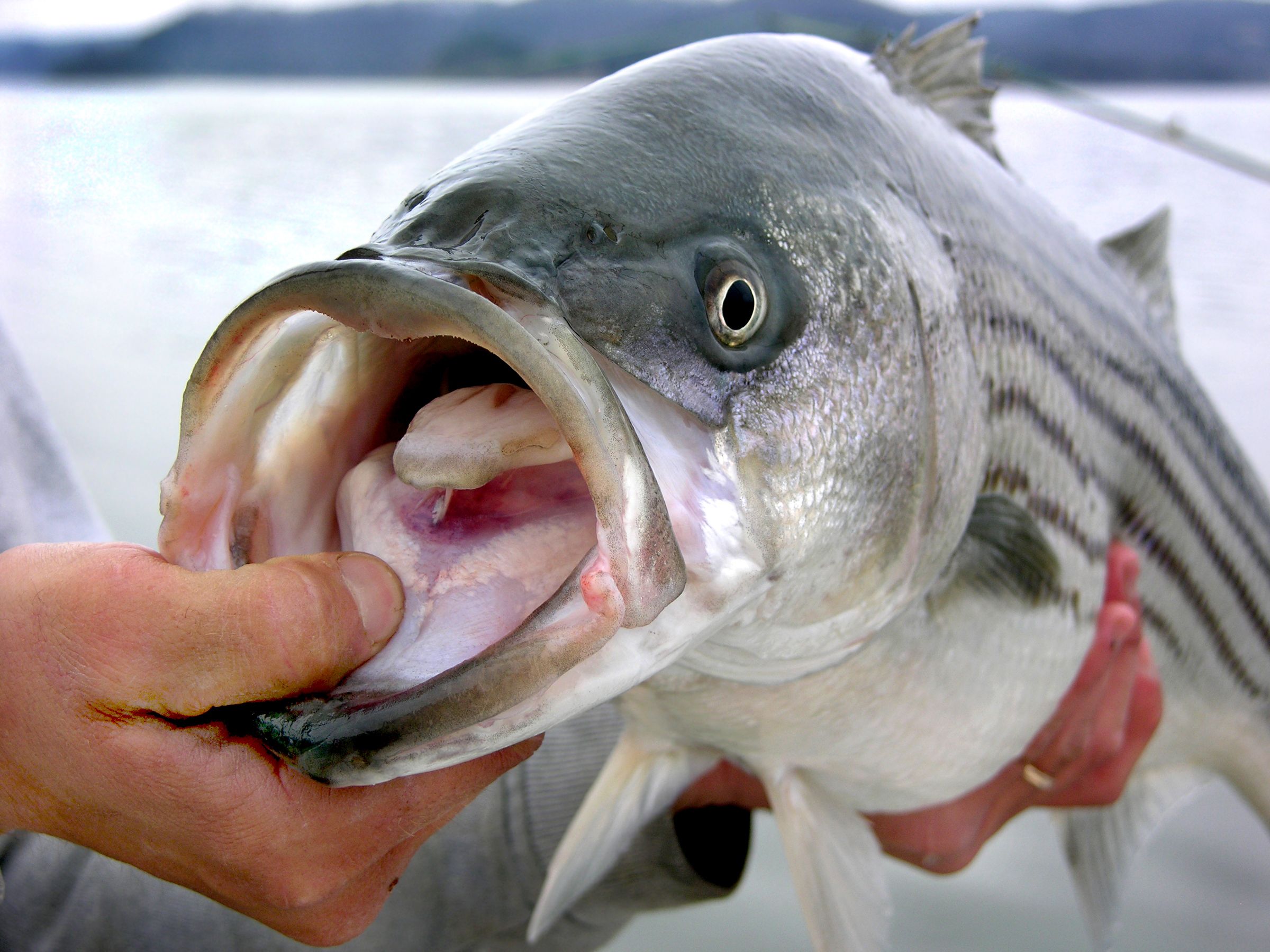
A fisherman has spoken of how he almost lost his finger after a rare bacteria entered his hand when a fish fin cut him.
Colby Milward was out on Lake Texoma, a reservoir on the border of Oklahoma and Texas, when the fin of a striper sliced into his finger, he wrote on Facebook.
Milward told NBC-affiliate KFOR.com he was catching fish after fish at the time. At first, the injury didn't hurt that bad. "It was 'wipe the blood and keep fishing'," he said.
Soon, the joint on his top knuckle had become "hot, red and inflamed," he told the broadcaster. A doctor confirmed his hand was infected. The pain persisted, and he visited the Emergency Room where he was prescribed antibiotics. Still, the pain remained.
The fisherman was diagnosed with an Aeromonas Hydrophila infection, underwent three surgeries to save the digit, and was pumped with antibiotics on an IV for a week. Milward will need physical therapy to restore movement in his finger.
Milward told KFOR.com the sensation was worse than knee and hip surgery. "I've never felt pain like that," he said. "Throbbing, you can feel your heartbeat at the end of your finger." In a Facebook post alongside images of his cut, he wrote: "Dr anticipates a full recovery and got to keep all my digits but it is going to be a slow recovery, with no fishing for the immediate future.""Just wanted to share to hopefully prevent someone else from enduring the same experience," he said.
Milward is recovering, and hopes to head back to Lake Texoma soon. He won't stop fishing, he told told KFOR.com.
"I don't want my kids to stop fishing. It's a pastime that we love and enjoy," he said.
From now on, however, Milward says he'll use gloves while fishing, and carry hydrogen peroxide to clean up any cuts.
"I could have lost a finger or hand, or the way the doctor described it, even worse," Milward told KFOR.com. "If I would have let it go, it could have went septic or got into my bloodstream."
Milward urged others to go to the doctor if "something doesn't feel right or look right."
The Aeromonas hydrophila bacteria can cause a range of conditions, from stomach upsets to wound and soft tissue infections. It is believed to cause 13 percent of cases of gastroenteritis in the U.S. which can result in watery or bloody diarrhea. The bacteria can also cause kidney disease; the blood disorder hemolytic-uremic syndrome; meningitis; eye infections; blood poisoning; and infections of the respiratory tract.
Found around the world, the bacteria lurks in water—particularly, ground water, drinking water at treatment plants, and reservoirs, and distribution centers. But it can also be present in produce like dairy products and meat.
Earlier this year, a separate incident involving a fisherman in Florida also shone a light on the potential risks of the pastime.
Mike Walton from Ozona was fishing in the Gulf of Mexico when he was nicked by a hook, and infected by a "flesh-eating" bacteria. Surgeons cut out the infected tissue in his hand and arm.
Uncommon Knowledge
Newsweek is committed to challenging conventional wisdom and finding connections in the search for common ground.
Newsweek is committed to challenging conventional wisdom and finding connections in the search for common ground.
About the writer
Kashmira Gander is Deputy Science Editor at Newsweek. Her interests include health, gender, LGBTQIA+ issues, human rights, subcultures, music, and lifestyle. Her ... Read more





